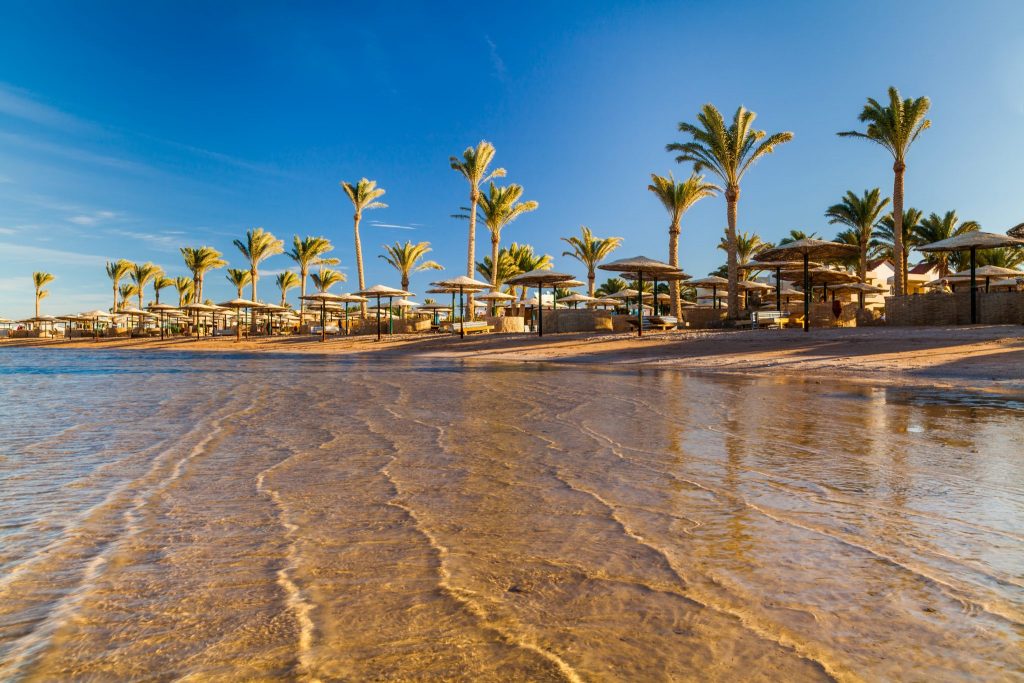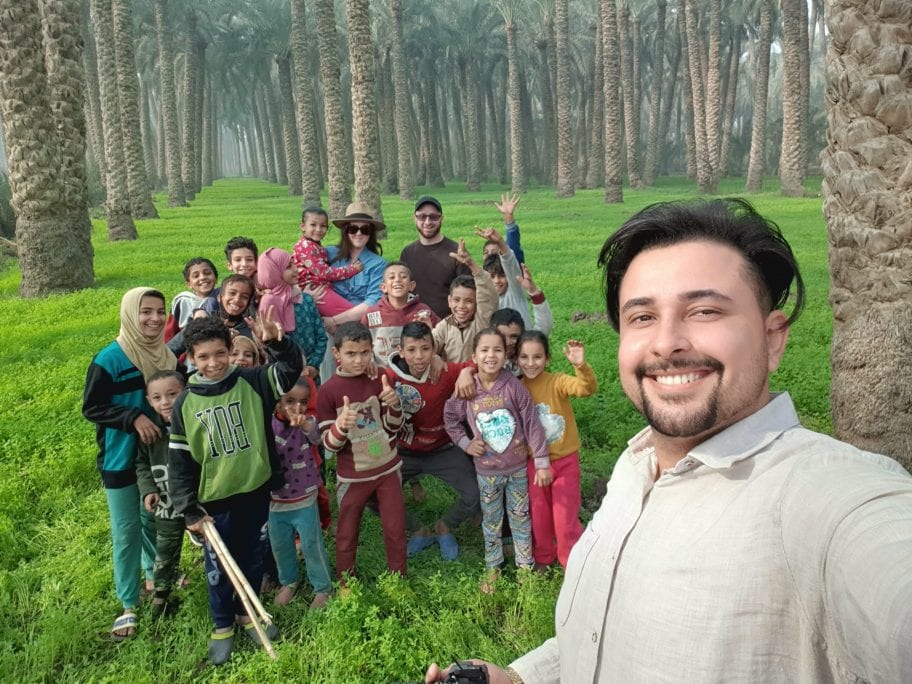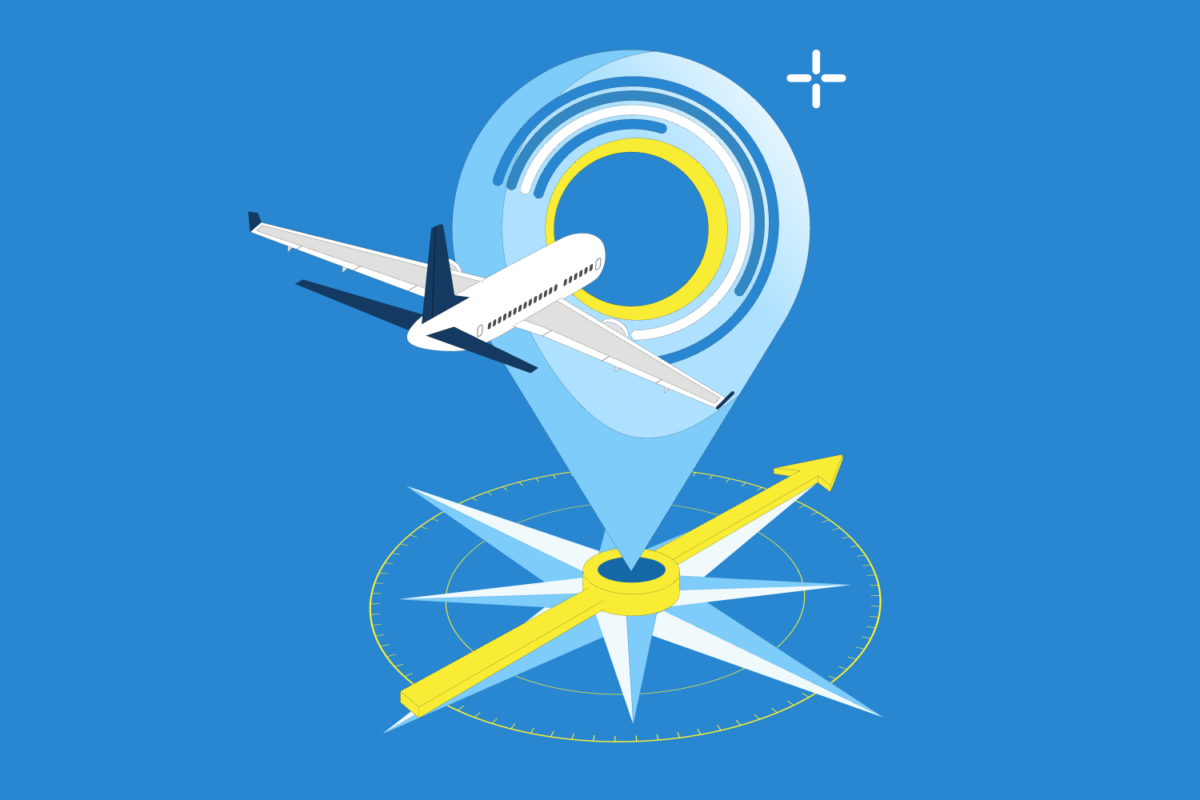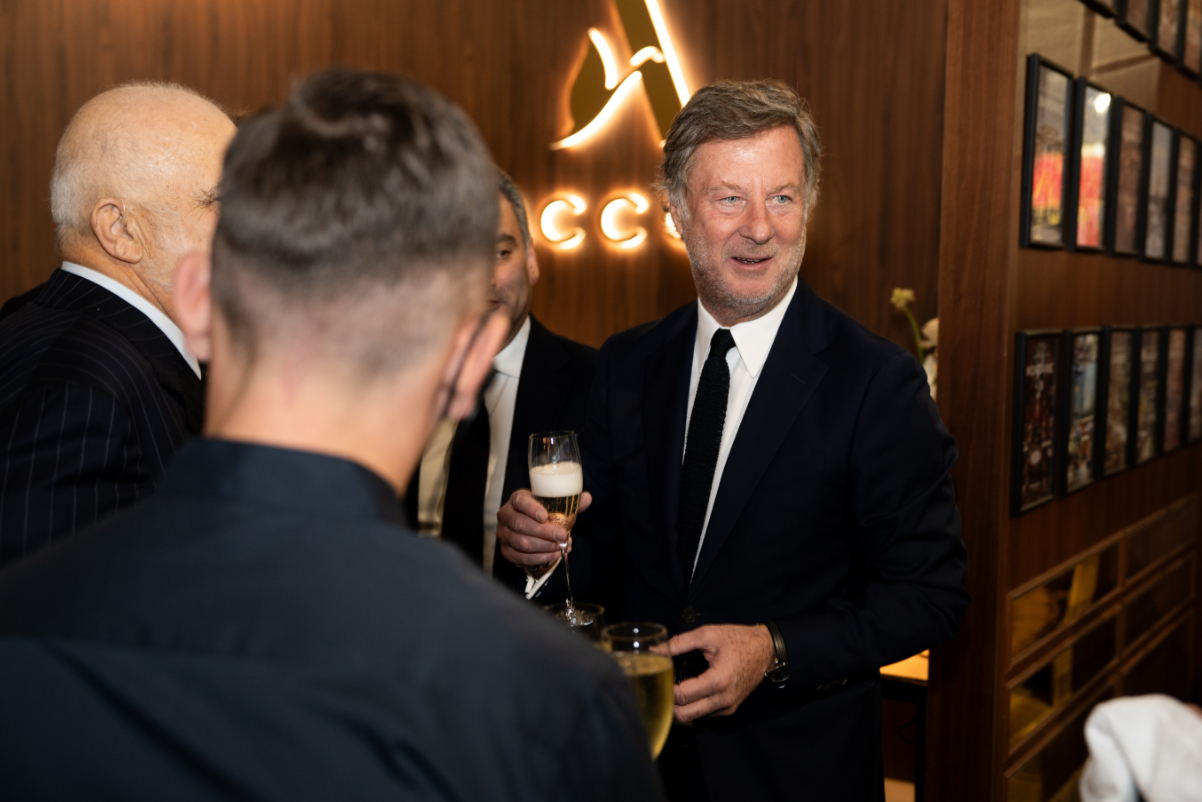Egypt Sidelines Locals by Importing Global Travel Influencers to Boost Luxury Tourism

Skift Take
Vietnamese travel and lifestyle influencer Bé Hà Nguyen can be seen on her official Instagram page frolicking at a Red Sea beach resort in a bikini while embracing her partner for a kiss in Cairo — all under the #ExperienceEgypt hashtag in scenes that you typically wouldn’t see in a country like Egypt.
That’s because Egyptian authorities are intolerant of such displays of personal freedom, while state media is critical and sometimes incites hatred against women or LGBTQ+ individuals for engaging in what most people around the world would consider everyday behavior.
But for authorities, Ngyuen is an influencer who comes with clout — a following of over 515,000 users on Instagram and media connections back home. Nguyen, who lives in Prague, visited Egypt earlier this month as part of the Ministry of Tourism’s campaign to market the country in a post-pandemic world.
The ministry, officially known on Twitter and Instagram as @ExperienceEgypt, invited a group of vloggers and influencers with hundreds of thousands of followers to post pictures and videos from various scenic locations.
While Egypt may have a lot to offer when it comes to beautiful destinations, from its pristine Red Sea coastline to white desert dunes in Al Farafra, the campaign felt out of touch and far-removed from reality due to the pandemic, as well as ongoing human rights abuses in the Arab world’s most populous country.
“Though there is still much work to be done, it is safe to say that society and the industry as a whole are moving away from tolerating influencer content that completely ignores all levels of social, political, and environmental injustices,” said Carol Cain, a New York-based communications guru and founder of PR firm Brave World Media.
Both the tourism ministry and Ngyuen didn’t respond to Skift’s repeated requests for comment.
With over 10,000 deaths from the pandemic and almost 180,000 reported cases of Covid-19, tourism revenues in Egypt fell nearly 68 percent in 2020.
In 2019, the country’s tourism sector contributed $30.6 billion (EGP 496.4 billion) to the overall gross domestic product.
Since the political upheaval that followed after Egypt’s 2011 uprising, it took years for the sector to recover.
Tourism in the Sinai Peninsula had also faced difficulties after the uprising, including sporadic militant attacks and the crash of a Russian passenger jet in 2015.
Earlier this month, authorities even built a 36-kilometer concrete and wire barrier encircling Sharm el-Sheikh on the southern tip of the Sinai to help protect tourism at the popular Red Sea resort.
Double Standards
In Egypt, leisure and luxury tourists are the most sought-after because they account for roughly 86 percent of visitor spending.
“Foreign tourists spend more than local travelers. They also pay in dollars and the government likes foreign currency,” said Mohamed Turisi, an Egyptian travel influencer and photographer.
Turisi, who was first interviewed by Skift in 2019, estimates that out of his 75,000 followers on Instagram, about 90 percent are foreigners — mainly Americans and Europeans interested in Egyptian tourism and travel photography, he said.
The 27-year-old self-taught tour planner uses Instagram to reach followers and clients, and is currently pursuing a two-year diploma in Tourist Guidance and Hospitality at Cairo-based Helwan University. He said he wanted to use the pandemic pause to prepare for new opportunities when the sector recovers.
He said he’s not surprised that not many Egyptian travel influencers were invited to participate in the ministry’s campaign.
“That’s because we don’t cater to luxury tourists — these are the type of visitors that Egypt is seeking to revive travel after the pandemic,” he said.
“Egypt also treats locals one way, and foreigners in another,” he added, matter-of-factly.
This means that the government has no problem with influential internationals kissing or dancing in skimpy swimsuits, so as long as they do it while promoting the country.
At the height of the global pandemic last year, this kind of double standard especially stood out when authorities launched a massive campaign to crackdown on women influencers from Egypt’s working class.
With millions of followers on social media, the women became celebrities on TikTok, Instagram and other platforms with videos they posted of themselves lip-syncing, dancing, and singing playfully. Two of them, Haneen Hossam and Mawada el-Adham, were 20 and 22 when they were convicted and slapped with two years in prison in July 2020.
“These women are hits among influencers and young people alike,” said one Egyptian travel influencer who asked not to be named because of the sensitivity of the matter. “After being released from prison, they’re coming back stronger. We all look forward to the kind of fun content they continue to bring.”
At the time of their arrests, the Egyptian women were charged with “violating family values” and inciting “debauchery.”
“When a society is governed by ‘morality leaders,’ these laws not only statistically silence women but also endanger them. And there is no clear evidence that foreign women wouldn’t be held by these very real, albeit loosely defined standards or be subjected to the same threats,” said Cain from Brave World Media.
Egypt often uses vague morality laws arbitrarily to crackdown on individuals unaffiliated with the state. This sends a message that only women and celebrities who agree to collaborate with the state or behave within certain boundaries are allowed to dress or behave how they please.
“This is the unspoken rule,” one young travel influencer said anonymously. “If the government allows women from the working class of society to have such basic freedoms, then others from the lower-middle-income classes will think it’s acceptable; the government doesn’t want that because it could create massive social change.”
Conscience Tourism
Change, however, is inevitable in the world of travel, particularly as more young people and women are taking part in a global awakening against injustice and racism. Egypt and the wider Middle East region are no different.
Despite the Egyptian tourism authority’s campaign to project an idealized version of society that simply doesn’t exist, Egyptian travel photographers and vloggers say they still love to promote their country’s picturesque destinations and will continue to do so on their own.
Budding travel influencer Yousef ElAbd says he still does what he can part-time to promote tourism and also collaborate with local travel agencies for private photoshoots.
ElAbd, an 18-year-old self-taught photographer, who’s studying Portuguese and English at Cairo-based Ain Shams University, has about 8,000 followers on Instagram.
“I actually started my own content to represent my beautiful country and unveil its beauty,” he told Skift.
Some of his work was shared and used by the tourism ministry on its social media platforms, but he said it was in no way an official collaboration.
“Experience Egypt follows me on Instagram, but until now they haven’t officially reached out, and unfortunately we haven’t worked together,” he added.





